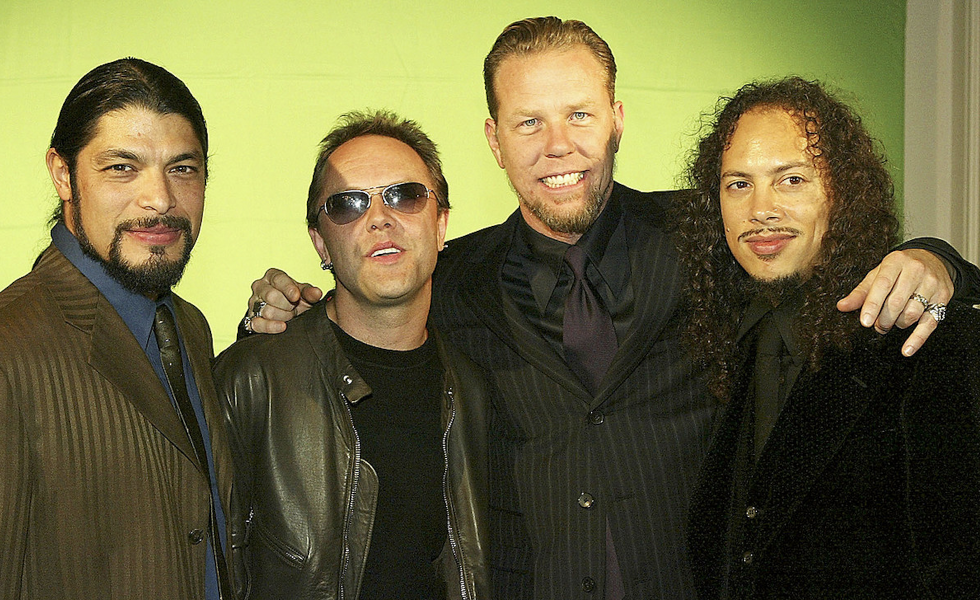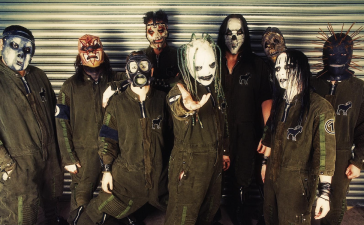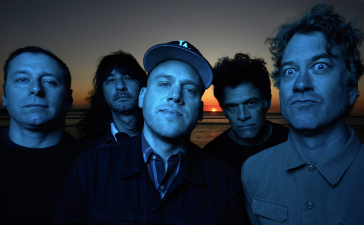Today, there’s a good chance that if you’re not on Spotify, Apple Music or TIDAL (or if you’re a giant, punishing contrarian, SoundCloud Go), you’ve probably got a whole bunch of music downloaded from BandCamp, iTunes or the Google Play store – or, y’know, cheekily scrounged up from the high seas. Digital music is no longer “the way of the future” – it’s the way of right now. It’s much, much more uncommon for punters to go out and purchase a physical CD; sure, collectors will keep the medium alive for decades to come (as they have for vinyl and cassette), but the go-to method of consumption for today’s average music fan is to tap away at their smartphone’s screen until the noises start magically flooding their ears.
13 years ago, all the way back in 2008, that wasn’t the case. Don’t get us wrong, digital music was incredibly popular – Apple had well and truly taken over the world with the iPod, and the iPhone had just sunk its heels into the mainstream too – but it wasn’t quite at the level where bands were ready to embrace MP3s (let alone streaming, which at that point was virtually unheard of) over good ol’ fashioned CDs. Some where, of course: the two biggest were arguably Radiohead and Nine Inch Nails, going so far as to eschew marketplaces like iTunes entirely in favour of offering up their own boutique download packages.
In the middle of 2008, BLUNT writer George Miles looked into his crystal ball (and phoned Remote Control Records founder Steve Cross) to see what the ever-opaque 2010s held in store for the Internet’s worldwide music industry takeover. And today, we’re revisiting his report to see just how close he was to the mark.
IS MUSIC FREE?
With the music industry undergoing its biggest upheaval since the invention of the CD, George Miles looks to the future and asks whether paying for recorded music is a thing of the past.
It’s hard to argue with a musician as successful, forceful and downright scary as Trent Reznor. When the Nine Inch Nails frontman, a music industry legend who has run his own major label imprint and sold close to 20 million records, tells fans to “steal [my music] and steal some more, and give it to all your friends and keep on stealing”, it’s difficult to ignore him.
When Reznor made those comments at a NIN concert in Sydney last year, he made headlines around the world. But Trent wasn’t the only high-profile voice calling for music fans to subvert the record industry by downloading music for free. Across the board, 2007 was the year that bands told major labels to fuck off – whether it was Radiohead leaving EMI and becoming independent, or Madonna walk-ing away from Warners and signing an all-encompassing deal with a concert promoter.
Artists like Madonna and Reznor have become frustrated with the record industry’s inability to adapt to the mp3 revolution, and they’re looking for new ways to do business as a result. Now, in 2008, when the majority of music consumed by the public is illegally downloaded, major labels have less and less to offer their artists. Perhaps more importantly, they haven’t been quick enough to adapt to the 21st century’s digital frontier.
As a result, many artists are now looking after the release of their music themselves – often using the Internet as their one and only means of promotion. Radiohead, NIN and countless others have embraced the idea of selling their music as mp3s, then releasing it on physical CDs (usually through a small, independent label) at a later date. Even Metallica, who notoriously led the crusade to shut down the original P2P network, Napster, are currently in the midst of an elaborate online release (see breakout box).
“It took three months to sell the same number of copies of our new album as our last album sold in the first day. I’m not kidding.” – Chris Shiflett [Foo Fighters]
Steve Cross, owner of Australian independent label Remote Control, was responsible for the physical release of Radiohead’s latest album, In Rainbows, in January 2008. He says that, while downloading has hurt all sorts of record labels in recent years, indies are surviving and adapting better than their major-label counterparts. “I’d guess that in part that’s due to the fact that the indies are more aligned with genuine music fans,” he says, “people who are more dedicated to the artist and more likely to buy the CD or vinyl or a legit download of the entire album. The majors are generally aimed at more casual music buyers who are more likely to grab a download of the song they like on the radio and not bother buying the album. Plus, indies have been operating on shoestring budgets for years and they’re pretty flexible and modest. That isn’t the case for the majors, and a downturn in sales impacts a lot harsher on their business models.”
It is now universally accepted that physical CD sales have decreased dramatically in the last three years. According to Chris Shiflett, guitarist for the Foo Fighters, “It took three months to sell the same number of copies of our new album as our last album sold in the first day. I’m not kidding.” The biggest question that now remains is whether record labels have anything left to offer musicians and the music-loving public.
So, where do we go from here? Is the current popular music business model (getting signed, selling CDs, receiving extensive promotion from record labels) on the verge of extinction? Most industry pundits would argue yes but that it’s not necessarily a bad thing. In the seven years since the demise of Napster, the mp3 phenomenon has grown and morphed so quickly that least the major labels – has been able no one – not to keep up. At the same time, the retro stylings of vinyl have undergone a renaissance (thanks in part to the ever-growing global punk scene). Who’s to say what changes or advancements the next decade will bring?
Cross believes that record companies – especially indies – will endure in the future, but that their focus will change. After all, he says, labels have always done more than just manufacture records, and bands still need companies to help them with the business side of making a living from music.
“When we started Remote Control we didn’t call ourselves a label,” Cross explains. “It didn’t seem to fit. We only started calling ourselves a label because everyone else thought we were, and it was easier to say that than explain what we actually do. We think we just support artists by providing marketing, publicity and a few other rather tedious services (wanna discover the adrenaline rush of preparing a royalty statement? ). Artists for the most part don’t want to do the stuff we do, they want to make music and leave the less creative aspects to apparatchik like me. And it doesn’t matter if music is on CD or online or given away free with dog food, musicians will need the support of an infrastructure, even if that infrastructure isn’t in the shape of a record label.”
GIVE IT AWAY NOW
Four releases that are changing the way we buy music…
RADIOHEAD
IN RAINBOWS (OCTOBER 2007)
Radiohead’s ‘pick your price’ gamble paid off when hundreds of thousands of fans coughed up their cash for high-quality mp3s of the band’s latest opus. The online release also helped promote the physical release of In Rainbows, which hit #1 in the UK, US and Australia. “Actual CD sales for In Rainbows are as strong as the band’s last few albums in Australia,” says Steve Cross – “no decline at all.” But he says it would be a mistake to think Radiohead’s model will work for every artist. “Radiohead are a household name with an enormous global fanbase and can attract massive media coverage alerting people to the fact they have an album out. You really can’t transfer that exact strategy to 99% of bands in the world and think it’s going to work. For the vast number of artists it just wouldn’t catch fire like that.”
PENNYWISE
REASON TO BELIEVE (MARCH 2008)
Taking the online release model to its logical conclusion, long-standing punk band Pennywise decided to release the online version of their ninth studio album for free. By teaming up with social networking behemoth MySpace to offer the mp3s, the band reached a huge number of new fans, many of them curious teenagers lured by the $0 price tag. As a result, the album has been downloaded more than 400,000 times a figure many times greater than the sales of the band’s previous albums. Physical versions (both CD and vinyl) were made available a month later, each with new bonus tracks. Anecdotal evidence suggests that the success of the Reason To Believe download has boosted ticket sales at recent Pennywise gigs (their recent Australian tour was 100% sold out).
NINE INCH NAILS
GHOSTS I-IV (MARCH 2008)
As one of the most vocal and high-profile opponents of the traditional major label system, there was never any doubt that NIN mastermind Trent Reznor would embrace the online model for his future releases. But his release of Ghosts I-IV was more sophisticated than anyone had imagined. A range of buying options was available: a standard $5US download, a pricier download offering access to ultra-high quality files, and a series of physical releases (on CD, vinyl and DVD-audio) ranging in price from $10US to $300US. Cheap-skates could download nine tracks from the album for free. According to nin.com, Reznor made more than $1million US from the online sales of Ghosts I-IV – and on top of that, the physical CD release (handled in Australia by Shock) made the Top 20 in the US and Oz. Reznor has also just released his second online album, The Slip, which is available as a 100% free download from nin.com.
METALLICA
NEW ALBUM (DUE OUT SEPTEMBER 2008)
In what can only be described as a 180 degree turn, metal titans Metallica have embraced the internet for the release of the follow-up to 2003’s St. Anger. The band, who once published a “shame list” of people they claimed had illegally downloaded their music, have launched an elaborate new website, missionmetallica.com, which will be regularly updated between now and September with videos, photos and audio. Fans have the option of viewing some of the content for free, or paying for “complete access”, which includes more content and the new album as a download, as well as on CD or vinyl. It’s the highest-profile example so far of a major label (Metallica are signed to Warner Bros.) attempting to adapt to the online release model.
This story was originally featured in BLUNT #71










